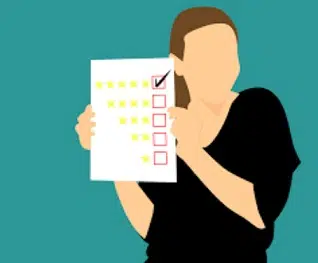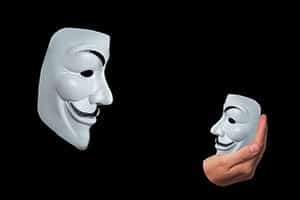 A self-evaluation is an evaluation that an individual makes of himself or his own issue . Evaluating, meanwhile, involves calculating, detecting or indicating the value of something .
A self-evaluation is an evaluation that an individual makes of himself or his own issue . Evaluating, meanwhile, involves calculating, detecting or indicating the value of something .
It can be said that self-evaluation involves making a judgment about oneself , either at a general level or focused on a certain action. It is usually carried out with the objective of learning and improving.
Self-assessment appears in different areas. In the academic field, students are often encouraged to self-evaluate so that they discover how they achieved a goal and know what they can generate to improve their performance .
In relation to educational systems, it is understood that self-assessment allows the student to know their individual progress . In this way it also contributes to reinforcing instruction, assuming responsibilities and motivating. For the teacher, on the other hand, the students' self-assessment is useful to know what assessment they make of the contents and the learning process.
In school it can also serve to help students learn an important lesson about honesty. For this purpose, some teachers decide to carry out the self-assessment process with all students at the same time, within the framework of a normal lesson, giving them a test that they have already corrected but pretending that they have not yet looked at it. Each one must, therefore, make his own correction and then say in front of the whole class what grade he thinks he has obtained; If he lies, adding points, the teacher exposes him in front of his classmates and thus shows him that the self-assessment must be sincere.
After the student stage, self-evaluation does not usually have an external impact on other people, but rather it is something merely intimate, which we do for ourselves without being judged. But like everything in life, we must learn from experience, and many times these blows in the years of childhood and adolescence save us from much stronger ones in the future.
 We must understand that we are not perfect, that our mistakes are an obstacle to our development and that for this simple reason we must eliminate them. It doesn't matter what they say, it's not about the opinion of others or about getting praise, but about what we think of ourselves: it is the truth that we cannot escape, and that is why it is in our best interest to sculpt our attitudes with care.
We must understand that we are not perfect, that our mistakes are an obstacle to our development and that for this simple reason we must eliminate them. It doesn't matter what they say, it's not about the opinion of others or about getting praise, but about what we think of ourselves: it is the truth that we cannot escape, and that is why it is in our best interest to sculpt our attitudes with care.
There are multiple ways to develop a self-assessment. A simple method is for the person to ask themselves what they knew at a certain moment, how they managed to learn what they learned, and what they know now. Creating concept maps and comparative tables, in this framework, is very useful.
In short, self-assessment appears as a reflection activity. It is an analysis that helps understand performance and promotes personal development when carried out periodically. To avoid a counterproductive effect, it is important not to overdo it with self-criticism so as not to lose motivation.
One of the problems when carrying out a self-assessment is that we face our expectations and the result is not always positive. If after a year of investing energy in a project we ask ourselves how it went and we see that the answer is negative, a part of us will try to convince ourselves that "it is not our fault", since "we have done everything possible" but "we have had bad luck", etc.
Put another way, we must hold on to an objective view of the facts for self-assessment to be accurate and useful. This way we can make better decisions for the future.
